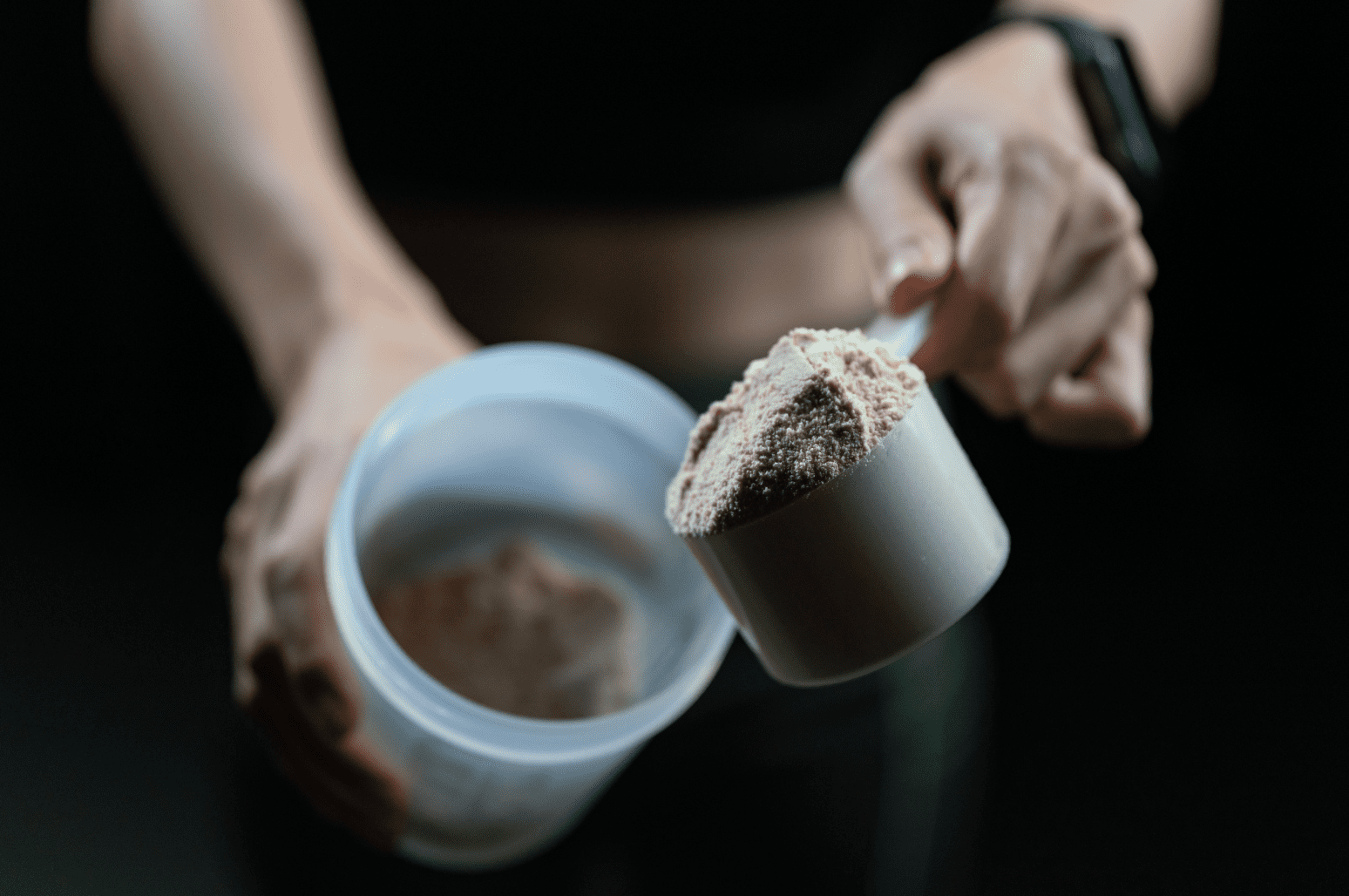All About Insulin Structure, Signaling, and Stability

Key Takeaways About Insulin:
- Insulin is a critical protein hormone that is responsible for restoring glucose homeostasis.
- Insulin dysfunction may hallmark several pathologies including T2D, Obesity, and PCOS.
- Restoration of insulin sensitivity and stability may be achieved via adoption of a ketogenic diet.

Insulin molecule (orange) attached to the external binding site of its transmembrane receptor protein (blue).
Insulin. It is a familiar term that is tossed around in the health and wellness space. Despite its ubiquitous presence in our vernacular, understanding what it is, how it functions, and its physiological importance is by no means trivial. Its function (or lack thereof), may not only serve as a hallmark of disease, but it can play a critical role in numerous physiological processes in which it has the ability to drive disease progression [e.g. type 2 diabetes (T2D)] or optimize metabolic processes.
What Is Insulin?
From a molecular perspective, insulin is a protein. Produced in the β-islets of the pancreatic tissue, insulin is a hormone secreted in the presence of glucose (~>4g for a 70 kg human). [1] [2] Insulin is biologically active in its monomer form after undergoing post-translational processing. [3] [4] [5] Its well-characterized role, in short, is to permit the uptake of glucose by cells after it binds to its insulin receptor via conformational change and signal transduction. [3] [4]
Insulin’s response to blood glucose is paramount as glucose cannot enter the cell to be further utilized as energy without it. When insulin can appropriately execute is biological role (i.e., upon non-homeostatic blood glucose elevation), an individual is characterized as being insulin sensitive. [4] Despite such a delicately orchestrated biological response, when insulin is dysfunctional, havoc is wrecked on the individual’s energy mechanisms, unfortunately resulting in numerous pathological consequences.
Causes and Complications of Insulin Dysfunction

Location of the pancreas in the abdominal cavity.
There exist several levels of insulin dysfunction that may result in one of more types and magnitudes of diseases. For some individuals, such insulin dysfunction occurs at the genetic level in which their pancreas simply will not synthesize insulin this is known as type 1 diabetes. A more prevalent insulin dysfunction and rather a growing epidemic occurs when insulin was at one time functional (i.e. the individual used to be insulin sensitive and as time progressed, insulin was needed in significantly larger amounts to carry out its function (i.e., the individual is now insulin resistant. As such, the β-cells in the pancreas become taxed in keeping up for the increased demand in insulin production, manifesting into T2D; therefore, it is now the inability of glucose to be shuttled into the cell due to insulin resistance that adversely impacts the individual (e.g. hyperglycemia, cell energy starvation, inflammation). [5]
Although a hallmark of T2D, insulin resistance is a common characteristic of several other diseases including polycystic ovarian syndrome (PCOS) and obesity. [5] [6] In an effort to mitigate such insulin and metabolic dysfunction, achieving a state of insulin stability can be highly efficacious; therefore, it is through the therapeutic application of a ketogenic diet that these insulin levels may be stabilized. Due to the numerous physiological implications of ketone bodies themselves (i.e., alternative fuel source, anti-inflammatory, anti-oxidant, etc.), such dietary intervention can have a profound biological impact on disease mechanisms and progression that extend beyond insulin stability.
References
Wasserman, D. H. (2009). Four grams of glucose.American Journal of Physiology-Endocrinology and Metabolism, 296(1), E11.
Weiss, M., Steiner, D. F., & Philipson, L. H. (2014). Insulin biosynthesis, secretion, structure, and structure-activity relationships. In Endotext [Internet]. MDText. com, Inc.
Hooper, C. Overview of insulin signaling pathways. Abcam.
Goodsell, D. (2015, February). PDB101: Molecule of the Month: Insulin Receptor. RCSB. https://pdb101.rcsb.org/motm/182. Accessed March 2019.
Ye, J. (2013). Mechanisms of insulin resistance in obesity. Frontiers of medicine, 7(1), 14-24.
Marshall, J. C., & Dunaif, A. (2012). Should all women with PCOS be treated for insulin resistance?. Fertility and sterility, 97(1), 18-22.









